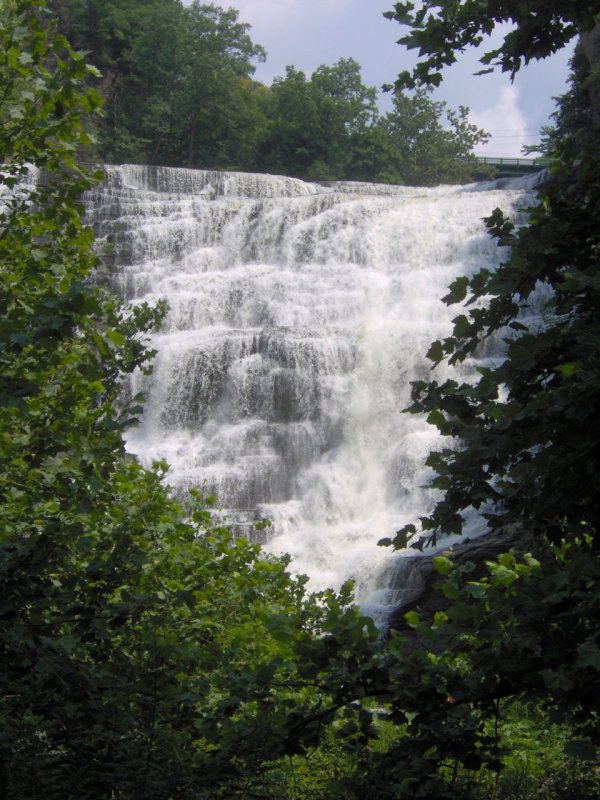Ominous Warnings from Environmental Conference
(Thanks to Jane Marie Law)
From The Independent
[Click Permalink for more...]Apocalypse now: how mankind is sleepwalking to the end of the Earth
06 February 2005
Future historians, looking back from a much hotter and less hospitable world, are likely to pay special attention to the first few weeks of 2005. As they puzzle over how a whole generation could have sleepwalked into disaster - destroying the climate that has allowed human civilisation to flourish over the past 11,000 years - they may well identify the past weeks as the time when the last alarms sounded.
Last week, 200 of the world's leading climate scientists - meeting at Tony Blair's request at the Met Office's new headquarters at Exeter - issued the most urgent warning to date that dangerous climate change is taking place, and that time is running out.
A summary of the conference from the Daily Kos (Click the link for more discussion, pictures and additional links)
WATER WARS
What could happen? Wars break out over diminishing water resources as populations grow and rains fail.
How would this come about? Over 25 per cent more people than at present are expected to live in countries where water is scarce in the future, and global warming will make it worse.
How likely is it? Former UN chief Boutros Boutros-Ghali has long said that the next Middle East war will be fought for water, not oil.
FLOODING
What could happen? London, New York, Tokyo, Bombay, many other cities and vast areas of countries from Britain to Bangladesh disappear under tens of feet of water, as the seas rise dramatically.
How would this come about? Ice caps in Greenland and Antarctica melt. The Greenland ice sheet would raise sea levels by more than 20ft, the West Antarctic ice sheet by another 15ft.
How likely is it? Scientists used to think it unlikely, but this year reported that the melting of both ice caps had begun. It will take hundreds of years, however, for the seas to rise that much.
RAINFOREST FIRES
What could happen? Famously wet tropical forests, such as those in the Amazon, go up in flames, destroying the world's richest wildlife habitats and releasing vast amounts of carbon dioxide to speed global warming.
How would this come about? Britain's Met Office predicted in 1999 that much of the Amazon will dry out and die within 50 years, making it ready for sparks - from humans or lightning - to set it ablaze.
How likely is it? Very, if the predictions turn out to be right. Already there have been massive forest fires in Borneo and Amazonia, casting palls of highly polluting smoke over vast areas.
THE BIG FREEZE
What could happen? Britain and northern Europe get much colder because the Gulf Stream, which provides as much heat as the sun in winter, fails.
How would this come about? Melting polar ice sends fresh water into the North Atlantic. The less salty water fails to generate the underwater current which the Gulf Stream needs.
How likely is it? About evens for a Gulf Steam failure this century, said scientists last week.
STARVATION
What could happen? Food production collapses in Africa, for example, as rainfall dries up and droughts increase. As farmland turns to desert, people flee in their millions in search of food.
How would this come about? Rainfall is expected to decrease by up to 60 per cent in winter and 30 per cent in summer in southern Africa this century. By some estimates, Zambia could lose almost all its farms.
How likely is it? Pretty likely unless the world tackles both global warming and Africa's decline. Scientists agree that droughts will increase in a warmer world.
ACID OCEANS
What could happen? The seas will gradually turn more and more acid. Coral reefs, shellfish and plankton, on which all life depends, will die off. Much of the life of the oceans will become extinct.
How would this come about? The oceans have absorbed half the carbon dioxide, the main cause of global warming, so far emitted by humanity. This forms dilute carbonic acid, which attacks corals and shells.
How likely is it? It is already starting. Scientists warn that the chemistry of the oceans is changing in ways unprecedented for 20 million years. Some predict that the world's coral reefs will die within 35 years.
HURRICANES
What could happen? Hurricanes, typhoons and violent storms proliferate, grow even fiercer, and hit new areas. Last September's repeated battering of Florida and the Caribbean may be just a foretaste of what is to come, say scientists.
How would this come about? The storms gather their energy from warm seas, and so, as oceans heat up, fiercer ones occur and threaten areas where at present the seas are too cool for such weather.
How likely is it? Scientists are divided over whether storms will get more frequent and whether the process has already begun.
Sarcastic comment alert: Guess Jeb and George will have a few more photo opportunities.
Solutions
Aside from the obvious (quit driving gas-guzzlers, or if you have to drive, think about driving a hybrid), there have been some interesting suggestions regarding decreasing greenhouse gases. One of these ideas is CO2 sequestration, although I think that the first priority should be to just quit driving gas-guzzlers.


0 Comments:
Post a Comment
<< Home